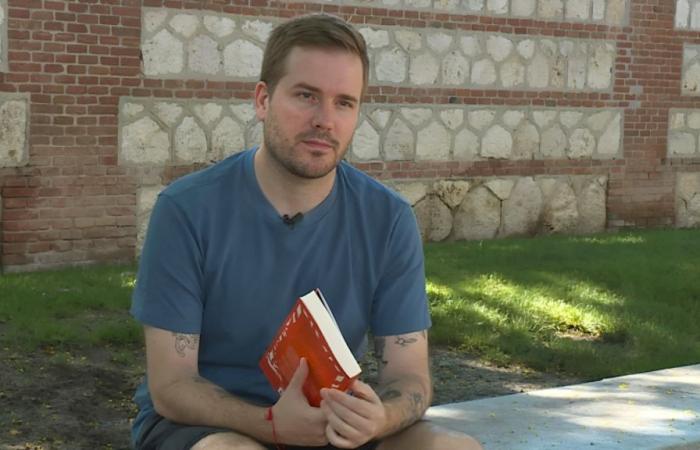
“Above all I am at peace“, confesses the writer Javier Ruescas with his new novel in his hands. “Writing a book about something so personal and so hard has been quite cathartic.”
It refers to what happened three years ago on a night of celebration in Madrid. “During the Pride festivities, My partner, Andrés, was attacked by a police officer after calling him a “hottie” and a “faggot.”
“My partner was attacked by a police officer after calling him a ‘hottie’ and a ‘faggot’.”
That same morning of July 4, 2021, in A Coruña, and Also shouting ‘faggot’, another young man, Samuel Luiz, was murdered. “For us it was a shock very big,” Ruescas remembers. “What impressed me most was that Andrés had the energy to, the day after everything that happened to us, go to the concentration that was held in Sol as a result of the death of samuel“.
What should not have happened
Javier and Andrés could tell their story. The first was done through Twitter, in a post that immediately went viral. They also decided to report, even though The police officers refused to provide their license plate numbers.. “I didn’t want to report it. I wanted to go home, I was terrified. It was the moment when someone much stronger had attacked you, a bully, and what you want is to hide. And yet Andrés said: no, I want to report.”
Ruescas assures that, even with everything, and “within all the huge quotes”, They were “lucky it happened to them”. “We speak Spanish, we have resources, a high socioeconomic level, but if this happens to someone who is from another country, who is racialized, who does not have papers, the only thing they can do is leave,” he laments.
Three years have passed and a trial in which The police officer was acquitted due to lack of evidence, although it was proven that Andrés received a slap in the face. by a municipal agent. From frustration and the need to tell oneself what happened, to vent, is born the novel What happened.
“If this happens to a person from another country, racialized, without papers, the only thing they can do is leave”
“This book would never have been written if any of the police officers at that checkpoint had helped us., if someone had approached us to ask if we were okay. But, instead, what they did was hide his partner, take him to the other side of the checkpoint and put him in a car to disappear.”
If you can, record
With this book, Javier Ruescas seeks to “get into the heads” of all those involved, who are not only the aggressor and the attacked. “In the novel you are the boy who received the slap, you are his boyfriend, you are the friend, you are the sister, you are the mother, you are a police officer, you are a hater of social networks, you are the psychologist… So, there comes a time when you have to decide what you think of the story.
“When faced with an attack, do not feel that it is your fault and report it. And if you can, record it”
But, above all, it wants the reader to understand what their rights are, how to exercise them, and explain how to act in the face of verbal and physical aggression like that suffered by their partner. “The main thing is not to be afraid, do not feel that it is your fault and report“he explains. “And If you have the opportunity to record, record. Do not send it to anyone, do not send it on WhatsApp, do not send it on networks, do not share it with anyone. But that graphic material is probably going to be the only thing that helps you file a complaint and that there is a guilty defendant.”
This, of course, is in the worst case scenario. Because, as Ruescas says, if we all understood something as basic as that a person cannot attack another because of who they are, we would not be talking about what happened. “I still believe in justice, I have no other choice. I prefer to have that halo of hope because in other cases I have seen that it works,” says the writer. “But I have more problems with believing in the value of the police. I know they do a lot of work, and luckily we also found police officers who gave us a hand, but, in the end, What you have seen is how they have attacked your partner and how they have covered each other“.





